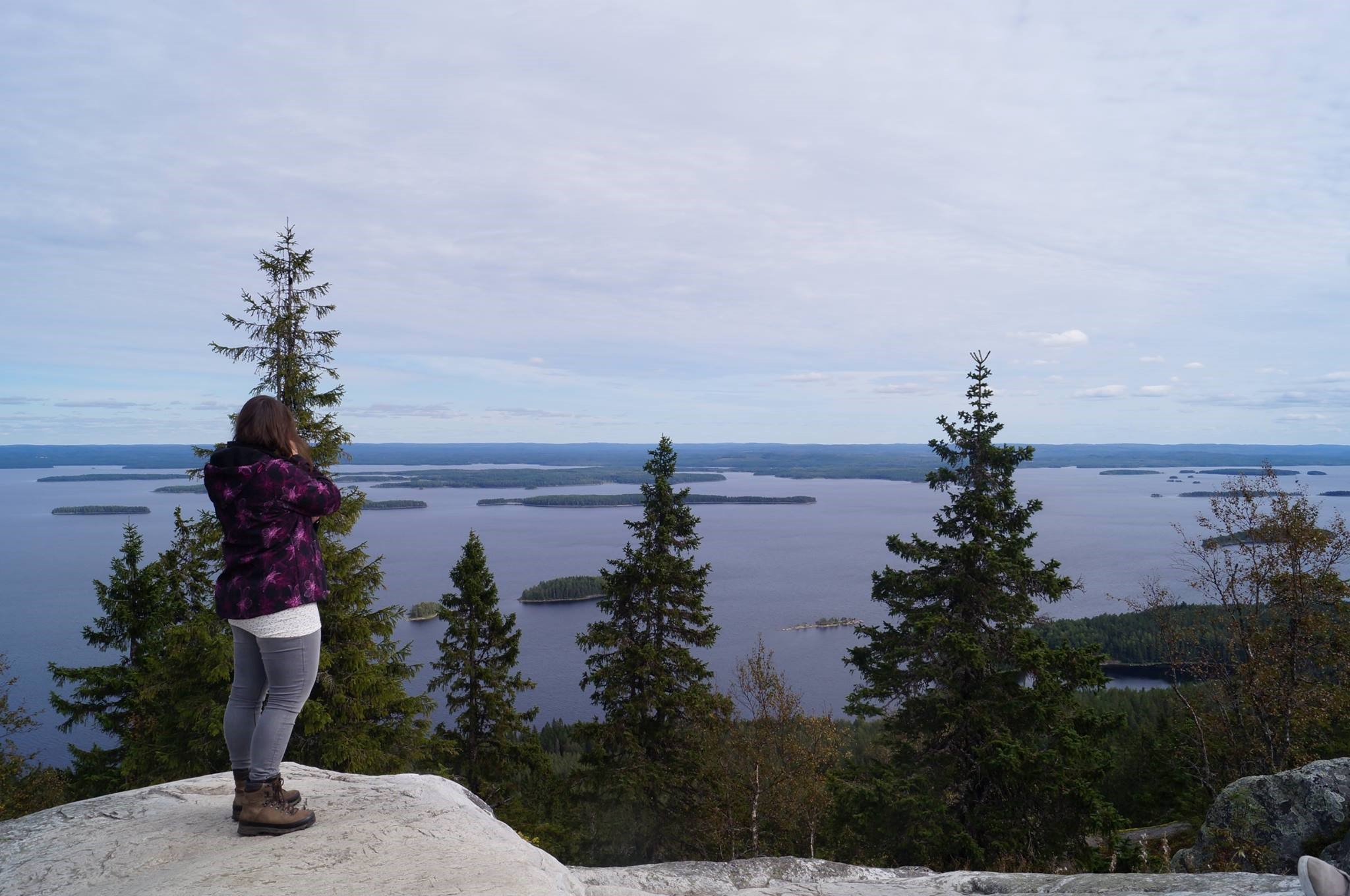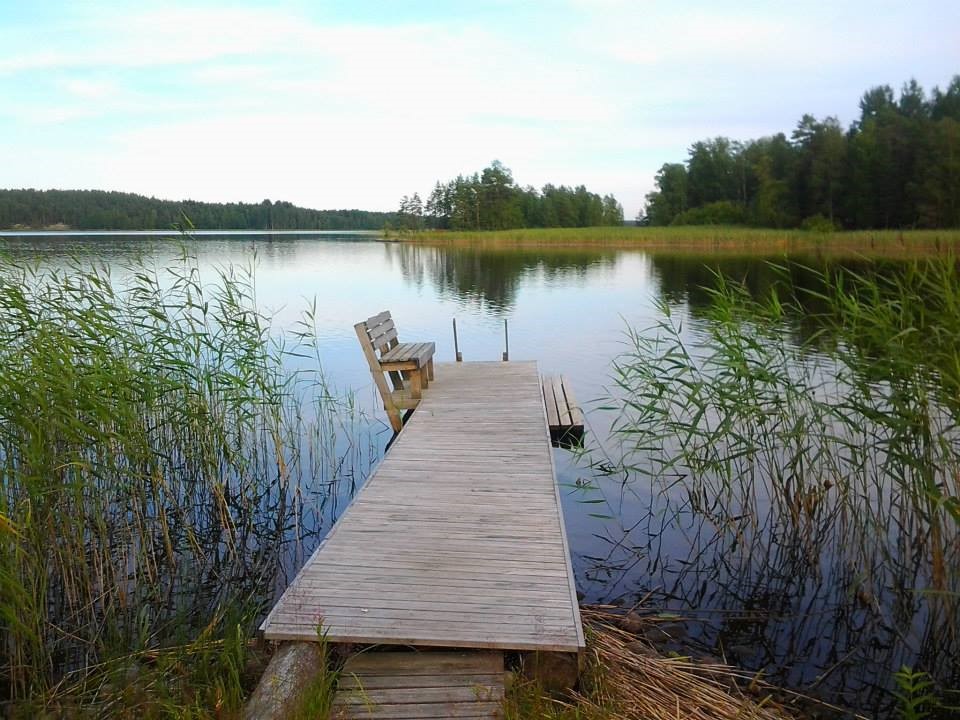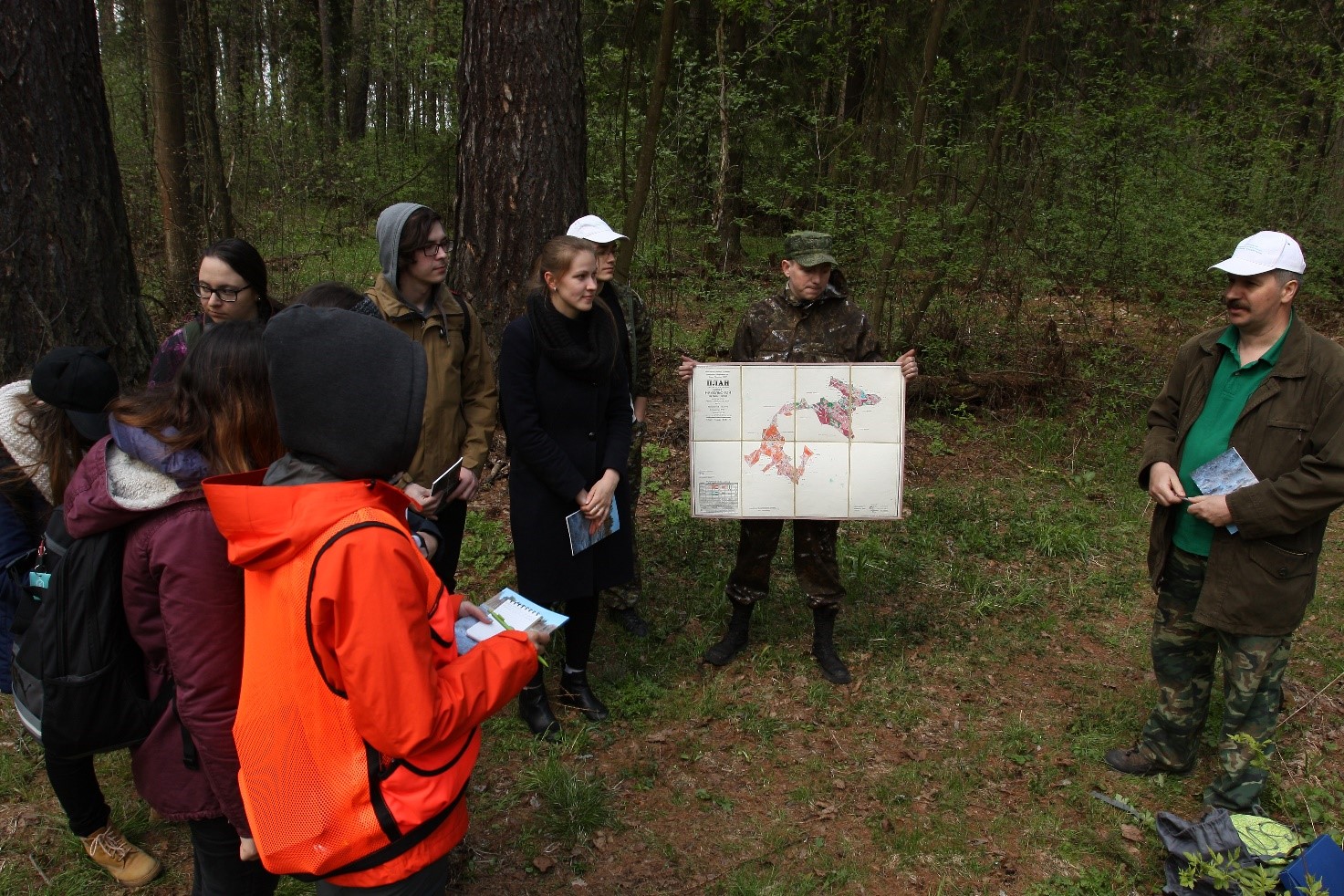In the middle of forest-where

“Hello, my name is Daniela, I come from Slovakia and I study forestry at the UEF in Joensuu… “
After this kind of introduction, I usually get several reactions or questions like… “Aaaa Slovakia! Game of Thrones was made there?” or “Forestry? What you study in forestry? Trees?”, but also “So how is it to study forestry there? Is it better?”, especially from forestry students from different countries.
The first answer is always “you probably mean Slovenia, not Slovakia, but I am also not sure if GoT was made over there – so you probably mean Croatia.” And here the movie geography ends.
Forestry is a very wide science including for example genetics of plants (and trees), soil hydrology, ecology, forest silviculture and management, mechanization and techniques used in forest management, economics and even policy and information systems. Forestry therefore offers a variety of focuses for everyone who is interested in forests in their own way either practice or science oriented.
It was my teenage dream, which seemed impossible at the time
I chose to study forestry Finland for few simple reasons. First of all, it was my teenage dream, which seemed impossible to reach when I was younger (thank you Erasmus program for giving me this life-changing opportunity <3). Secondly, I knew about the Finnish landscape: plenty of lakes, islands and deep forests full of mysterious. Thirdly, I was interested in harvesting operations, forest mechanization and timber transportation techniques, especially timber floating, and Finland was the most common country in European context mentioned in these areas. Even though at the time of my Erasmus there was no option to study in Helsinki, I am happy it was so. Joensuu is indeed the best place to study forestry and I immediately fell in love with the university and the city.
It is… different
Studying forestry at a university in Slovakia and Finland is different. It might be because of different education system, but of course different nature conditions are one of the main reasons as well. I do not like to say that I like studies in Finland more than in Slovakia. It is like comparing apples and cherries. Each one is unique in its own way. But based on my own experience and discussion with students from other countries, I can briefly describe few findings.
There are plenty of exchange, MSc or PhD international students at the university. This leads to quite high level of English language performance among students and teachers. For me personally, this was quite challenging, because the English education I have received before was not enough to not worry about passing exams in English (and seriously thinking to give up after two days of lectures). I talked to many students from post-communist countries having the same problem and feeling ashamed of it. But I encourage you, this is a special opportunity to work on yourself and acquire self-confidence in English. After reading those dozens of papers you will adopt a decent vocabulary and exams will not be a problem anymore.
Speaking of papers… in my home country, we used to study from certain “study books” for the course. Studies here are strongly oriented on self-studies. Libraries and study spaces are often overcrowded even during evenings and weekends by hard-working studying students or teams working on their group projects. This kind of environment can be super motivational.
Regarding to international community, you will find it more than inspirational. During discussions, which are often provoked even in lectures, you will hear about the situation in forestry in different countries. Such knowledge you cannot gain studying only at your home university. Isn´t it absolutely fantastic that you do not need to travel so much in order to get a broad picture about forestry in different parts of the world?!
What I appreciated a lot was not only the international environment, but also a variety of specializations of students participating in courses. When doing group works you suddenly realize, that you talk to and cooperate with environmentalists, lawyers and geographers. It is a great way to learn to work together and to reach the same goal. It is also good preparation for practice within natural resource management, where participation of different opinions is vital to be taken into account in order to secure sustainable nature resource management.
What makes a significant difference between various practices in forestry and it is reflected in forestry studies, as well, are the natural conditions of each country. In Slovakia, there is a huge amount of forest types, various slopes, weather conditions, etc. from which different forest management and harvesting techniques derive. For this reason, at my home university we focused lot on finding the best solution for different conditions, each having their own limitations for forestry practice. When studying at an international study programme in forestry, orientation was strongly on innovation, new principles and science. It is obvious and understandable, that each university adapts its focus based on the country-specific needs related to forests.
This brings me to another observation. Many students were confused from the small amount of field courses compared to what they were used to at their home universities. They realized that many courses are computer-based, which makes them feel far from forests as such. The reason for this might be the different Finnish educational system. In Finland, more practice-oriented schools are universities of applied sciences and universities as such are strongly research-oriented. In case you want to develop your research approach, knowledge of methods
Forestry at the UEF, a life-changing choice
Forestry at the University of Eastern Finland was an amazing choice. I do not regret a minute choosing it. Like I mentioned above – it is different compared to what I have studied in Slovakia, that is why I did not find completing my second MSc in Forestry like wasting of time repeating what I have already learned. I appreciated the strong linkage between theory, education and research. This way we can better see the connections between principles which are already in practice and how research helps in developing those principles. Studies of forestry at the UEF gave me valuable knowledge and experience which helped me to shape my specialization, which I love, and made me a person passionate about forestry research.
I highly recommend this unique university in the heart of marvelous Finnish forests and lakes. You will indeed fall in love with your daily routine of bicycling through the coniferous forest paths to school, and it will wake you up better than coffee. You will for sure want to barbeque as frequently as possible after experiencing campfire with the view on crystal-like water and trees on your back. You will want to come back after trying sauna with ice swimming which makes you feel a bit like a real Finn. You will never forget the blueberry pie from own-picked berries, international dinners and endless discussions with your friends from all around the world, blaming midnight sun, mosquitoes or dark days from your sometimes poor study performance. This everything and much more is part of the experience “package” which studies in Joensuu can bring you.


– – – – – – – – – – – – –
What international forestry studies you can choose from? For more information:
European Forestry http://www.uef.fi/en/web/mdp-europeanforestry
Cross-boder Finnish-Russian University (CBU) Forestry http://www.uef.fi/en/web/mdp-cbufor
Transfor-M http://www.uef.fi/en/web/mdp-transform
– – – – – – – – – – – – –
Daniela Tináková